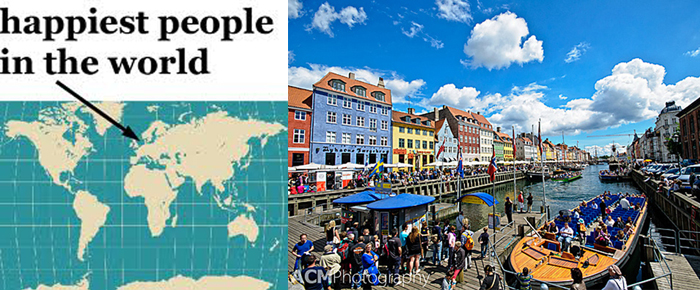
By Haddon Libby
Are you happy? The Founding Fathers of our great nation felt that the pursuit of happiness was an inalienable right and as such included this in our Constitution.
An independent group of scholars from around the world coordinated via The Earth Institute at Columbia University prepared a World Happiness Report and ranked the countries of the world in a quest for the happiest people.
Overall, sixty countries are happier, 41 less happy and 29 about the same than they were in 2007.
The ten happiest countries are: Denmark, Norway, Switzerland, Netherlands, Sweden, Canada, Finland, Austria, Iceland and Australia while the least happy was Togo followed by other vacation spots like Benin, the Central Africa Republic, Burundi, Rwanda and Syria.
Where was the United States? Seventeenth. Other notables were Israel (11), New Zealand (13), Mexico (16), the UK (22), France (25), Germany (26), Russia (68), China (93), Iraq (105), India (111) and Egypt (130),
In formulating these results, they found that happiness essentially consists of your emotional feelings right now as well an evaluation of your life as a whole.
While you might think that money buys happiness, they found that mental health is the most important factor to happiness. Next is a sense of well-being as well as robust social interaction with others. While money is an important component to happiness, it is not because of material things that wealth can provide but the ability to feed yourself and your family while being able to maintain one’s health in the avoidance of illness. Acts of altruism add to one’s good feelings as does the sense that you have the freedom to make your own choices in life. Corruption was seen as one of the greatest negative impacts on happiness.
As it relates to the United States, the study found that the aggressive push for greater income in the United States during the Bush Administration came at the cost of greater corruption, greater mental illness and a lower sense of community due to a decline in ethics and trust.
All of the countries ranked ahead of the United States have lower income except for Norway. Scholars concluded that “hyper-consumerism” as experienced in the United States does not advance happiness as it causes excessive greed; less social cooperation for public goods (like healthcare); insufficient honesty (required for a stable financial system) and; insufficient concern for the poor. They further concluded that the United States will continue to be less happy so long as we have an inadequate social safety net and lowered ethical behavior in all walks of life.
A concerning consequence of hyper-consumerism is that workers are less stable in their jobs and increasing must relocate in search of work. This has serious negative consequences on community and tears apart family units.
Another global concern is that increased time watching the television or using the Internet erodes social conductivity which is critical for happiness.
Lastly excessive hedonism leads to greater unhappiness, addictions and physical and mental illnesses.
So what creates more happy people? Virtue Ethics. ‘Virtue Ethics’ is the respect for human life and the environment; justice and fairness, honesty and tolerance as well as mutual respect and working in partnership with others along with civility in business and government.
Happiness is improving most in Latin America and the Caribbean and least in the Middle East and North Africa. While the world as a whole is happier than it was seven years ago, the United States is less happy.
The study showed that happiness can best be found from the ancient teachings of Aristotle and Buddha. Helping others makes one happier themselves. Living a life of honesty and compassion are two critical traits toward personal happiness.










































